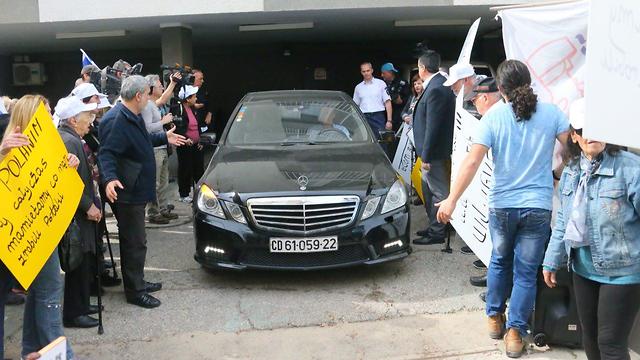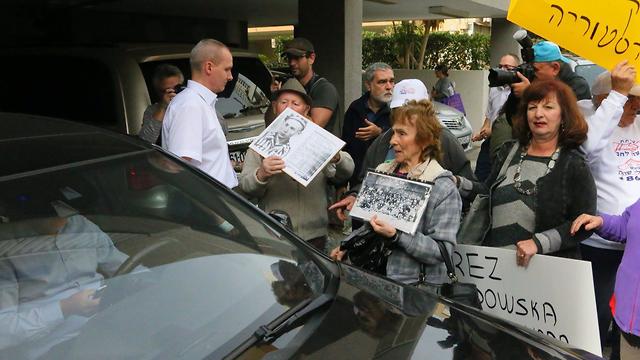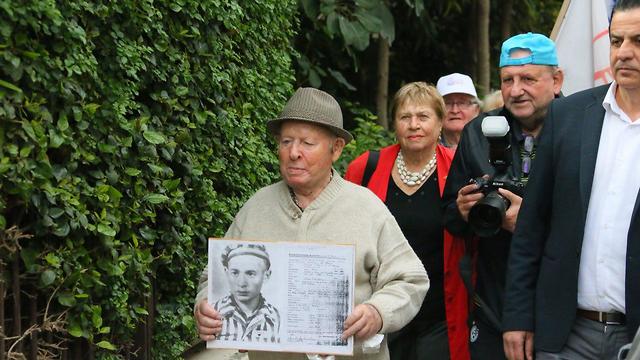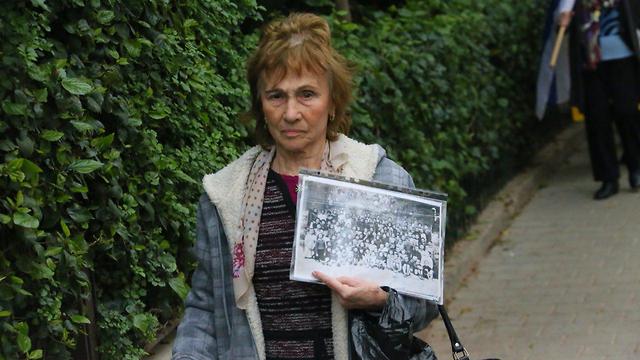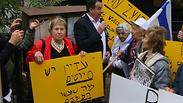

Holocaust survivors outside Polish embassy: 'We won't forget what you did'
Dozens of protestors enter embassy compound in Tel Aviv, encircle diplomat's vehicles and hold up signs against the law that outlaws blaming Poland as a nation for Holocaust crimes committed by Nazi Germany; 'no law can erase history,' they say.
"No one will forget what you did," the protestors shouted at the diplomat.
The Holocaust survivors arrived with signs reading, "No law can erase history, "The Polish law is a slap in the face of the people of Israel" and "Poles, we remember what you did."
One protestor held a sign reading, "I still have nightmares over what the Poles did."
On Tuesday, Poland's President Andrzej Duda signed the controversial legislation, defying both criticism from Israel and a warning from the US, but said he would also ask Poland's constitutional court to evaluate the bill—leaving open the possibility it could be amended.
As written, the legislation calls for prison terms of up to three years for falsely attributing the crimes of Nazi Germany to Poland. The law takes effect 14 days after it's officially published, but it wasn't immediately clear when that will be.
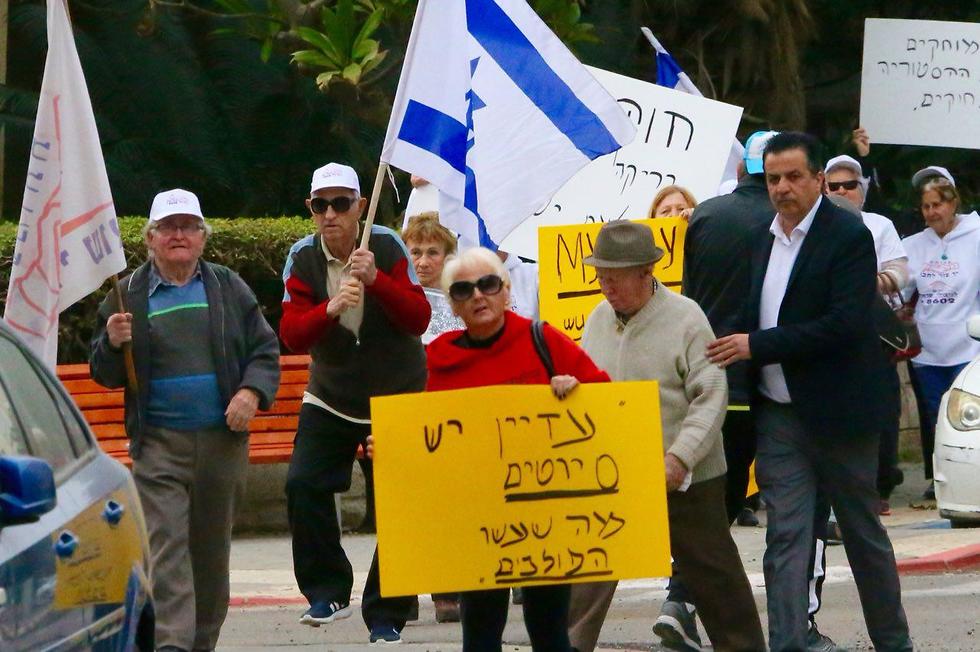
The protestors, who arrived on behalf of the Yad Ezer La-Haver organization, stood under the embassy building and spoke about the way they were treated by Polish citizens during World War II. Shaul Gorka, 82, said that "every Passover they would carry out pogroms against us, so the Poles were anti-Semites and received orders from the Polish church. We were saved by the Russian army, and during the war we went to an orphanage in Lublin.
"This law is horrible," he added. "They are failing to consider us Jews, who lived on trees the entire war. There were entire towns in Poland with a majority of Jews, and today they're gone. I asked a Pole after the war why they did it, and he said the only reason was that the Jews took advantage of the Polish people."
'I ran through the woods for three years'
Esti Lieber, 80, said: "My father served in the Polish army and my entire family is buried in the woods. For a long time I was unable to say that mother had died, although I saw she wasn’t moving. I ran with my sister through Poland's woods for three years. This law is a disgrace for them. I know only one family which helped me. The rest didn’t care."
"When the ghetto opened, all the Jews in and around Warsaw came there. Every day was so difficult," 93-year-old Shalom Shtemberg said with tears in his eyes. "The SS and Gestapo would walk around, kill us and take people to the hard labor. There was no food or water, and every day they started taking the young ones to the camps. I was 14 years old, and in the ghetto I would walk around dead children lying on the roads and under the staircases.
"I decided to leave the Warsaw Ghetto. I escaped and was caught by the Germans, who moved me to the ghetto in Plonsk, where I worked in electricity. After a few months, the entire town was sent to Auschwitz. There were so many Poles there too who used to beat us up and cause trouble for us."
Yehudit Rosenweig, an 88-year-old Auschwitz survivor, said: "The Poles around us saw what was happening because we would walk in lines, under the rifles of German and Polish soldiers with automatic weapons. If someone would come out of the line, they would kill him because there was nowhere to run. After the war, people asked: 'Why did you go like lambs? Why didn’t you escape?' No one understood it was impossible.
"The Poles just stood around us, doing nothing, just watching the lines. We were without any clothes on or with torn clothes in the terrible October cold. That's how we marched and that's how they watched us. No one objected and no one helped."
The Associated Press contributed to this report.














